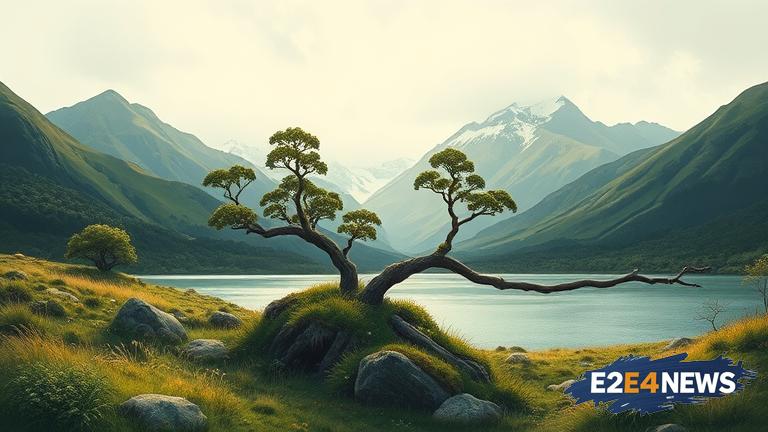New Zealand is renowned for its stunning natural beauty, with its lush forests, pristine lakes, and diverse wildlife. However, beneath the surface, the country’s ecosystem is facing numerous challenges. Invasive species, such as rats, stoats, and possums, are wreaking havoc on native bird populations and vegetation. Human activities, including deforestation, pollution, and climate change, are also taking a toll on the environment. The introduction of non-native species has led to a decline in native species, with many facing extinction. The kiwi, New Zealand’s national symbol, is one such example, with its population dwindling due to habitat loss and predation. Conservation efforts are underway to protect the kiwi and other native species, including the creation of predator-free zones and the reintroduction of native plants. However, more needs to be done to address the scale and complexity of the problem. The New Zealand government has implemented policies to combat invasive species and protect native ecosystems, but funding and resources are often limited. Community-led initiatives are also playing a crucial role in conservation efforts, with many volunteers working tirelessly to restore habitats and monitor wildlife populations. Despite these efforts, the threat of invasive species and human activities remains a significant challenge. Climate change, in particular, is having a profound impact on New Zealand’s ecosystem, with rising temperatures and changing weather patterns altering the distribution and abundance of native species. The consequences of inaction will be severe, with the potential loss of iconic species and the degradation of ecosystems. It is essential that New Zealand continues to prioritize conservation and sustainability, investing in research, education, and community-led initiatives to protect its unique and fragile ecosystem. The country’s biodiversity is a precious resource, and it is up to New Zealanders to ensure its preservation for future generations. By working together, it is possible to mitigate the effects of invasive species and human activities, and to restore the balance of New Zealand’s delicate ecosystem. The fate of the kiwi and other native species hangs in the balance, and it is imperative that action is taken to protect them. New Zealand’s ecosystem is a treasure that must be cherished and protected, not just for the benefit of the environment, but also for the country’s economy and cultural heritage.





